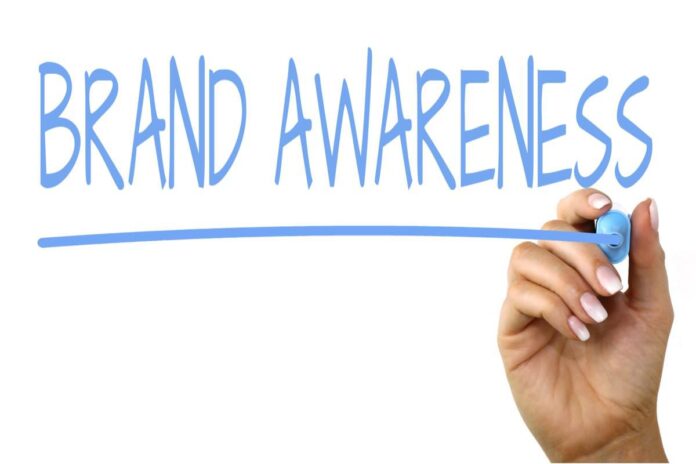
In today’s competitive market, building and maintaining a strong brand presence is essential for businesses to succeed. Brand awareness is a crucial aspect of this process, as it lays the foundation for consumer recognition, trust, and loyalty. In this article, together with the branding agency Outcrowd, we will look at the concept of brand awareness, how it works, special considerations to keep in mind, and various strategies for effectively increasing brand awareness.
What Is Brand Awareness?
Brand awareness refers to the level of familiarity and recognition a company’s brand or product holds among its target audience. It signifies how well consumers can identify and recall the brand when presented with its name, logo, or any other visual or auditory cue. High brand awareness indicates that a brand is easily remembered, making it more likely to be considered and chosen by consumers in the market.
How Brand Awareness Works

- Exposure: The first step in building brand awareness is to expose the target audience to the brand through various marketing channels. This can include advertising on television, radio, online platforms, social media, print media, and sponsorships, among others.
- Repetition: Consistent exposure is crucial for brand recall. The more frequently consumers encounter the brand, the more likely they are to remember it when making purchase decisions.
- Association: Brand awareness works hand in hand with brand association. Companies aim to create positive associations between their brand and specific attributes, values, or emotions. This way, consumers connect the brand with something personally meaningful.
- Engagement: Engaging with consumers through interactive content, social media interactions, and events can further solidify brand awareness. Positive experiences and personal connections leave a lasting impression on consumers.
Special Considerations Regarding Brand Awareness
- Trading in Technical Analysis: For companies in industries that rely heavily on technical analysis and financial markets, brand awareness is equally essential. Investors and traders often consider a company’s brand reputation and public perception when making investment decisions.
- Competition in the Market: In competitive markets, brand awareness becomes a critical differentiator. Companies need to stand out from their competitors and remain at the forefront of consumers’ minds to gain an advantage.
Other Ways to Create Brand Awareness

- Influencer Marketing: Collaborating with influencers and celebrities who align with the brand’s values can significantly boost brand awareness. Influencers can reach a vast audience and lend credibility to the brand.
- Content Marketing: Creating valuable and shareable content helps build brand awareness organically. Informative blogs, videos, and infographics not only engage consumers but also establish the brand as an authority in its industry.
- Public Relations: Positive media coverage and press releases can enhance brand visibility and reputation. Appearing in reputable media outlets can boost credibility and trust among consumers.
- Sponsorships and Events: Sponsoring events, charities, or community initiatives allows the brand to reach a broader audience and create a positive impact.
- Social Media Engagement: Active and authentic engagement on social media platforms humanizes the brand and fosters a loyal following.
- Referral Programs: Implementing referral programs that incentivize customers to refer friends and family can help spread the brand’s reach through word-of-mouth.
Conclusion:
Brand awareness plays a pivotal role in a company’s success. By creating memorable and positive associations with the brand, consistently exposing the target audience, and engaging with consumers, businesses can significantly increase brand awareness. Utilizing various strategies, such as influencer marketing, content creation, and social media engagement, allows companies to stay competitive in the market and build lasting relationships with their audience.








